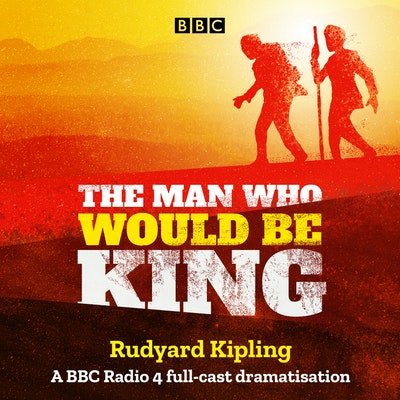Kipling's chilling adventure about two men who set out to be kings of a remote region of Afghanistan.
Kipling, our narrator, tells this strange story: he was running a newspaper in a big Indian city. In the hot stillness of one night when he was putting the paper to bed, two men come into his office. They are red-bearded giant Daniel Dravot and his friend Peachy Carnehan. These two \"gentlemen at large\" as they call themselves, lately of the British army, have put together an insane and dangerous plan: they want to be Kings of Kafiristan, a mountainous region of Afghanistan.
Three years later, a crippled man in rags comes into Kipling's office. He is Peachy Carnehan, and he relates the chilling story of their adventure.
A thrilling and haunting story about the folly and glory of imperial ambition, yet at its heart this is also a story of friendship.
Cast
Rudyard Kipling - Blake Ritson
Daniel Dravot - Richard Ridings
Peachey Carnehan - Samuel James
Timuk - Peter Polycarpou
Tribesmen - Joseph Ayre, Stephen Hogan, Ryan Early, Ryan Whittle
Young woman/Bride - Lauren Cornelius
Wounded man - John Lightbody
Produced by Abigail le Fleming




